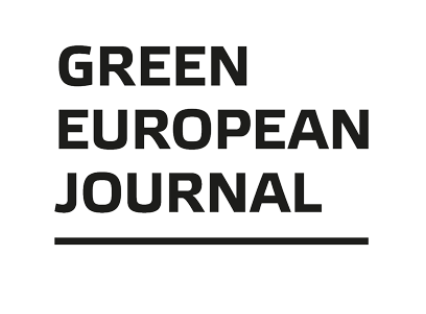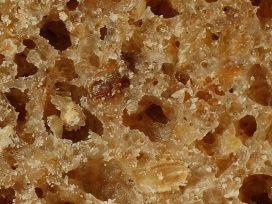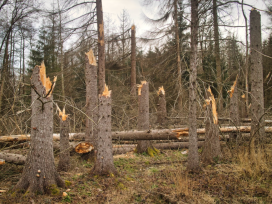What’s buzzin?
Contrary to popular belief, not all bees make honey. In fact, less than 4% of the total population of 20,000 species around the world do. As we rush to #SaveTheBees, many don’t know how, or which ones face the real threat of extinction.
It is estimated that bees are responsible for pollinating one out of three bites of the food we eat. While they certainly aren’t the only pollinators, they are the most effective, spending most of their life collecting pollen to feed their offspring. As they continue to vanish due to a range of causes, from industrialized agriculture to global warming, individual efforts at bee conservation are on the rise. The popularization of the #SaveTheBees movement in the 2010s led people to call for creating pollinator habitats, decreasing the use of pesticides and investing in beehives.
A crisis was declared in 2006 when beekeepers began noticing the disappearance of their colonies over winter: a phenomenon called colony collapse disorder. Campaigning about honeybees has raised awareness of the loss of other native, non-honey-producing wild bees.
Beekeeping is not just a hobby but also a way to reconnect with nature and our surrounding environment. This is crucial in times where we have become alienated from the species that sustain our lives, whether through a direct transactional relationship, as with the honeybee that produces the wax and liquid gold we consume today, or through a more symbiotic relationship, where we depend on wild bees to pollinate our crops.
However, the growth in urban hives is often too rapid for existing plant resources to maintain bee colonies, and might negatively impact biodiversity. So, what is a benevolent and responsible bee enthusiast to do?
Today’s guests
Sarah Waring is a staff editor at Eurozine and author of the book Farming for the Landless: New perspectives on the cultivation of our honeybee. She has written extensively on beekeeping as a farming practice across Europe.
Harald Kicker is a beekeeper from the Sonnwendgarten in Vienna, a community garden in the 10th district, where members are getting active and creating a place for gardening and neighbourly exchange.
Gergely Simon is an environmental chemist and a regional toxic expert at Greenpeace CEE. He is also the Senior Chemicals officer of the Pesticide Action Network Europe. Gergley deals with the analysis of domestic air pollution research, draws attention to the chemicals found in our everyday life and explores areas contaminated with dangerous toxins.
We meet with them at the Erste Foundation Library.
Creative team
Réka Kinga Papp, editor-in-chief
Merve Akyel, art director
Szilvia Pintér, producer
Zsófia Gabriella Papp, digital producer
Salma Shaka, writer-editor
Priyanka Hutschenreiter, project assistant
Management
Hermann Riessner, managing director
Judit Csikós, project manager
Csilla Nagyné Kardos, office administration
OKTO Crew
Senad Hergić, producer
Leah Hochedlinger, video recording
Marlena Stolze, video recording
Clemens Schmiedbauer, video recording
Richard Brusek, sound recording
Postproduction
Milan Golovics, dialogue editor
Nóra Ruszkai, video editor
István Nagy, post production
Art
Victor Maria Lima, animation
Cornelia Frischauf, theme music
Sarah Waring, bee illustrations
Captions and subtitles
Julia Sobota, Daniela Univazo, Mars Zaslavsky, Marta Ferdebar, Olena Yermakova, Farah Ayyash
Hosted by the Erste Foundation Library
Related reads
Breaking bread: Food and water systems under pressure, Eurozine Editorial.
Further sources
The honeybee: our vital link between agriculture and ecology by Sarah Waring, Beelines.
Disclosure
This talk show is a Display Europe production: a ground-breaking media platform anchored in public values.

This programme is co-funded by the Creative Europe Programme of the European Union and the European Cultural Foundation.
Importantly, the views and opinions expressed here are those of the authors and speakers only and do not necessarily reflect those of the European Union or the European Education and Culture Executive Agency (EACEA). Neither the European Union nor the EACEA can be held responsible for them.

Published 16 May 2024
Original in English
In collaboration with
In focal points
Newsletter
Subscribe to know what’s worth thinking about.
Related Articles

For a strong start into the second season, we talk about corruption in the EU. In the basement of the European Parliament we talk Italian mafia, Orbán’s son-in-law, and the misuse of public funding in member states with MEPs.

Death plays a key role in most religions, moral systems, and legal constructs. Although a heavy topic, talking about it is all the more important to process the grief that it causes. We cover burials, community, and ecology on this grave episode of Standard Time, premiering at 5 PM CEST.







